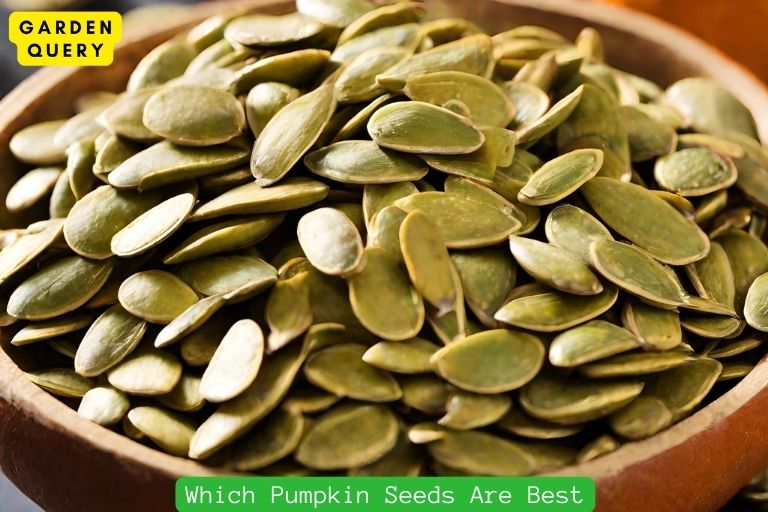How Much Pumpkin For Constipation?
The Benefits of Pumpkin for Constipation
The Nutritional Value of Pumpkin
Pumpkin is not only a delicious and versatile vegetable, but it also offers numerous health benefits, including its ability to relieve constipation. Before we dive into how pumpkin helps with constipation, let’s first take a closer look at its nutritional value.
Pumpkins are rich in fiber, which is essential for maintaining a healthy digestive system. A single cup of cooked pumpkin contains about 7 grams of fiber, making it an excellent choice for promoting regular bowel movements. Fiber adds bulk to the stool, which helps to move waste through the intestines more efficiently.

Additionally, pumpkin is packed with essential vitamins and minerals. It is an excellent source of vitamin A, vitamin C, and potassium, which not only support overall health but can also contribute to the smooth functioning of the digestive system. These nutritional benefits make pumpkin a natural and effective remedy for constipation.
How Pumpkin Helps Relieve Constipation
- High Fiber Content: As mentioned earlier, pumpkin is rich in fiber. The high fiber content adds bulk to the stool, making it easier to pass through the digestive tract. This can help alleviate constipation by promoting regular bowel movements.
- Hydration: Pumpkin has a high water content, which can help soften stool and make it easier to pass. Staying hydrated is essential for maintaining regular bowel movements, and incorporating pumpkin into your diet can contribute to your overall fluid intake.
- Natural Laxative: Pumpkin contains a natural laxative property that can stimulate bowel movements. This laxative effect is beneficial for individuals struggling with mild to moderate constipation.
- Rich in Nutrients: Besides its high fiber content, pumpkin contains essential nutrients that support overall digestive health. Vitamin A, for example, aids in maintaining the integrity of the intestinal lining. Vitamin C helps support a healthy immune system, reducing the risk of infections that can impact digestion.
- Versatility: Pumpkin can be incorporated into various dishes, making it easy to include in your diet. You can enjoy pumpkin in soups, smoothies, baked goods, or roasted as a side dish. This versatility allows you to find enjoyable and creative ways to consume pumpkin, ensuring you receive its constipation-relieving benefits regularly.
In conclusion, pumpkin is a natural and effective remedy for constipation. Its high fiber content, hydrating properties, and natural laxative effect make it an ideal addition to a constipation-fighting diet. Furthermore, the nutritional value of pumpkin supports overall digestive health. So, the next time you’re experiencing constipation, consider adding some pumpkin to your meals and enjoy its delicious taste while promoting regular bowel movements.
How to Incorporate Pumpkin Into Your Diet
Pumpkin Puree: A Natural Constipation Remedy
If you’ve ever experienced constipation, you know how uncomfortable and frustrating it can be. While there are various remedies available, one natural and delicious option to consider is pumpkin.
Pumpkin puree is an effective remedy for constipation due to its high fiber content. Fiber adds bulk to your stool and helps promote regular bowel movements. Additionally, pumpkin is also rich in water, which can soften your stool and make it easier to pass.
To incorporate pumpkin puree into your diet, you can try the following:
- Pumpkin Smoothies: Blend a cup of pumpkin puree with your choice of fruits, such as bananas or berries, along with some yogurt and a sprinkle of cinnamon for a tasty and fiber-rich smoothie.
- Pumpkin Oatmeal: Add a few tablespoons of pumpkin puree to your morning oatmeal. It not only adds a burst of flavor but also boosts the fiber content of your meal.
- Pumpkin Soups: Use pumpkin puree as a base for creamy soups. You can add various vegetables and spices to enhance the flavor and create a nourishing meal.
- Pumpkin Pancakes: Incorporate pumpkin puree into your pancake batter for a delightful twist on the classic breakfast favorite. Serve them with a drizzle of maple syrup for a sweet and satiating treat.
Delicious Pumpkin Recipes to Relieve Constipation
Here are a few more mouthwatering pumpkin recipes that not only taste delicious but can also help relieve constipation:
- Pumpkin and Bean Chili: Prepare a hearty chili by combining pumpkin puree, beans, diced tomatoes, and spices like cumin and chili powder. This fiber-packed meal will keep you full and aid in regular digestion.
- Pumpkin Curry: Create a flavorful curry by cooking onions, garlic, and spices in a pan. Add pumpkin puree, coconut milk, and your choice of vegetables or protein. Serve it over rice or quinoa for a satisfying meal.
- Pumpkin Energy Balls: Make a batch of energy balls by mixing pumpkin puree with oats, nut butter, honey, and your favorite mix-ins like chocolate chips or dried fruits. These bite-sized treats are perfect for a quick and fiber-rich snack.
- Pumpkin Bread: Bake a homemade pumpkin bread using whole wheat flour and natural sweeteners like honey or maple syrup. Slice it up and enjoy it as a fiber-rich snack or pair it with a cup of herbal tea for a comforting treat.
Remember to gradually introduce pumpkin into your diet, especially if you’re not used to consuming high-fiber foods. It’s also essential to drink plenty of water throughout the day to support healthy digestion.
Incorporating pumpkin into your diet can be a delicious and natural way to relieve constipation. With its high fiber and water content, pumpkin puree can help promote regular bowel movements and alleviate discomfort. Try out these recipes and enjoy the benefits of this nutritious and flavorful ingredient.
Other Natural Remedies for Constipation
Fiber-Rich Foods to Enhance Digestion
In addition to incorporating pumpkin into your diet, there are other natural remedies that can help alleviate constipation. One of the most effective methods is to consume fiber-rich foods. Fiber adds bulk to your stool, making it easier to pass through the digestive system. This can help regulate bowel movements and prevent constipation. Some examples of fiber-rich foods include whole grains, fruits, vegetables, and legumes. It’s important to gradually increase your fiber intake to avoid any potential discomfort. Drinking plenty of water is also important when consuming fiber, as it helps move the fiber through your digestive system.
Hydration: A Key Factor in Preventing Constipation
Staying adequately hydrated is crucial for maintaining regular bowel movements. When your body lacks water, the colon absorbs more water from the stool, resulting in harder and more difficult-to-pass stools. This can lead to constipation. To avoid this, make sure to drink enough fluids throughout the day. Water is the best choice, but herbal teas and fruit juices can also contribute to your overall fluid intake. It’s important to note that caffeinated beverages and alcohol can have a dehydrating effect, so it’s best to limit your consumption of these.
In addition to increasing your fiber intake and staying hydrated, regular physical activity can also help prevent constipation. Exercise stimulates the muscles in your digestive system, promoting regular bowel movements. Incorporating activities like walking, jogging, or yoga into your daily routine can make a positive impact on your digestion and overall bowel health.
If you’re experiencing persistent constipation or if your symptoms worsen, it’s important to consult a healthcare professional for further evaluation and guidance. They can help identify the underlying cause of your constipation and provide appropriate treatment options.
Remember that natural remedies may take time to show results, so it’s important to be patient and consistent in your efforts. By incorporating pumpkin, fiber-rich foods, staying hydrated, and engaging in regular physical activity, you can support healthy digestion and prevent constipation.
Pumpkin Supplements for Constipation Relief
Pumpkin Seed Oil: An Effective Natural Laxative
If you’re experiencing constipation and looking for a natural solution, pumpkin seed oil may be the answer. This oil is derived from pumpkin seeds and has been used for centuries due to its effectiveness in promoting regular bowel movements.
Pumpkin seed oil is rich in fiber, which adds bulk to the stool and stimulates the muscles in the intestines to move waste through the digestive system. The oil also contains a natural enzyme called cucurbitacin, which has a mild laxative effect.
To use pumpkin seed oil as a natural laxative, it is recommended to take 1-2 tablespoons daily. You can consume the oil directly or mix it into smoothies, salad dressings, or other foods. It is important to start with a lower dose and gradually increase it to avoid any digestive discomfort.
Pumpkin Enzyme Supplements: Boosting Digestive Health
In addition to pumpkin seed oil, pumpkin enzyme supplements are also available as a natural remedy for constipation. These supplements contain the enzymes found in pumpkin that help break down and digest food more efficiently.
Pumpkin enzymes, such as amylase and protease, aid in the digestion of carbohydrates and proteins, respectively. By improving digestion, these enzymes can help relieve constipation and promote regular bowel movements.
The recommended dosage for pumpkin enzyme supplements varies depending on the product, so it is best to follow the instructions on the packaging or consult with a healthcare professional. These supplements are usually taken before or with meals to enhance digestion.
In addition to its digestive benefits, pumpkin enzyme supplements also provide other health benefits. They can help reduce inflammation, support immune function, and improve overall gut health.
It is important to note that while pumpkin supplements can be effective for constipation relief, they are not a substitute for a healthy diet and lifestyle. Adequate hydration, regular exercise, and a diet rich in fiber are essential for maintaining healthy digestion.
To summarize, pumpkin seed oil and pumpkin enzyme supplements are natural remedies that can help relieve constipation. Pumpkin seed oil acts as a natural laxative, while pumpkin enzyme supplements improve digestion. However, it is important to use these supplements in moderation and as part of a comprehensive approach to gut health. Always consult with a healthcare professional before starting any new supplement regimen.
Precautions and Tips
Potential Side Effects of Consuming Too Much Pumpkin
While pumpkin can be a great natural remedy for constipation, it’s important to consume it in moderation. Consuming excessive amounts of pumpkin can lead to potential side effects. Some of these side effects include:
- Diarrhea: Pumpkin is high in fiber, and consuming too much fiber can cause loose stools or diarrhea. If you notice an increase in bowel movements or loose stools after consuming pumpkin, it may be a sign that you’ve had too much.
- Abdominal Discomfort: Eating large quantities of pumpkin can cause bloating, gas, and abdominal discomfort. This is especially true if you have a sensitive digestive system or existing digestive issues.
To avoid these side effects, it’s best to start with smaller servings of pumpkin and gradually increase your intake to see how your body responds. It’s also important to listen to your body and adjust your consumption accordingly. If you experience any negative side effects, it may be a sign that you need to reduce your pumpkin intake or try alternative remedies for constipation.
Consulting with a Healthcare Professional
While pumpkin is generally safe for consumption, it’s always a good idea to consult with a healthcare professional before making any significant changes to your diet, especially if you have underlying health conditions or are taking medications. They can provide personalized advice based on your specific needs and help ensure that incorporating pumpkin into your diet is safe and beneficial for your overall health.
Additionally, if your constipation persists or worsens despite incorporating pumpkin into your diet, it’s essential to seek medical advice. Chronic constipation may be a sign of an underlying health issue that requires further evaluation and treatment.
In conclusion, pumpkin can be a helpful remedy for constipation due to its high fiber content and natural laxative properties. It’s important to consume pumpkin in moderation to avoid potential side effects such as diarrhea and abdominal discomfort. Consulting with a healthcare professional can provide personalized guidance and ensure the safe incorporation of pumpkin into your diet. Remember to listen to your body and seek medical advice if constipation persists or worsens.
- Best Therapists In Dallas - February 1, 2024
- Holly Willoughby Husband: Holly Willoughby’s Love Story - January 30, 2024
- Holly Willoughby Dress: 5 Style Secrets and 7 Must-Know Career Milestones - January 30, 2024





